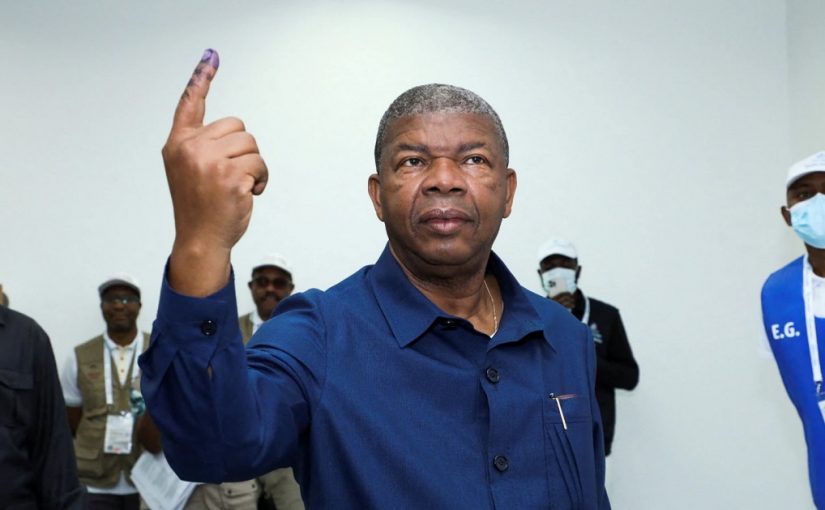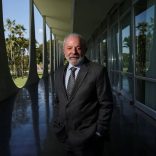Brazil Supreme Court rejects Trump pressure as Bolsonaro coup trial nears verdict
Angola’s president, MPLA party declared winner of divisive election

FILE - Angola's President and leader of the People's Movement for the Liberation of Angola (MPLA) ruling party Joao Lourenco gestures after casting his vote in a general election in the capital Luanda, Angola, Aug. 24, 2022. [File photo: Reuters]
Angola’s electoral commission on Monday declared the ruling MPLA, in power for nearly five decades, the winner of last week’s national election, handing President Joao Lourenco a second term.
The election commission gave the ex-Marxist People’s Movement for the Liberation of Angola (MPLA) a 51.17% majority after all votes were counted while its longtime opponent, the National Union for the Total Independence of Angola, or UNITA, got 43.95%, its best result ever.
Fewer than half of Angola’s registered voters turned out for Wednesday’s election, which despite being the closest fought yet, will extend the rule of MPLA to beyond 50 years since independence from Portugal in 1975.
UNITA leader Adalberto Costa Junior has rejected the results, citing discrepancies between the commission’s count and the main opposition coalition’s own tally.
He did not immediately respond to the final results announcement.
Analysts fear any dispute could ignite mass street protests and possible violence among a poor and frustrated youth who voted for Junior.
The announcement came a day after the funeral of Angola’s long-serving ex-ruler and MPLA stalwart, Jose Eduardo dos Santos, who died in Spain in July, so security in the capital Luanda was tight.
Concerns of fraud
The vote was peaceful, but the head of the Community of Portuguese Language Countries (CPLP) election observers’ mission, Jorge Carlos Fonseca, a former president of Cape Verde, told CNN Portugal on Sunday that around 2.7 million deceased people were included in the electoral roll.
He said voter registration must improve, that party delegates at polling stations did not have access to the electoral roll, and that some candidates were given more air time than others.
With a new, controversial centralised vote counting system, first provisional results were announced just hours after polling stations closed, and the final tally was available a few days later, in what was the fastest result ever. After the last elections it took two weeks for the votes to be declared.
If Costa Junior decides to formally dispute the result, he must lodge a complaint to the electoral commission. If that is rejected, he can challenge the result in the Constitutional Court, which must rule within 72 hours.
He has urged his supporters to remain calm.
The MPLA and UNITA, formerly anti-colonial guerrilla groups, were on opposing sides of a civil war since independence in 1975 until 2002, when Angolan troops killed UNITA’s rebel leader Jonas Savimbi.
Despite losing the election, UNITA has nearly doubled to 90 its seats in the 220-seat parliament, for the first time depriving the MPLA of the two-thirds majority needed to pass major reforms. The ruling party will need the backing of opposition lawmakers to pass legislation.
Lourenco, 68, has pledged to press on with reforms in his second term, including privatising poorly-run state assets and continuing to clean up corruption after investigating wealthy and powerful members of the Dos Santos family.
But his reforms have so far failed to create a fairer distribution of Angola’s vast oil wealth, which remains mostly in the hands of a few well-connected MPLA officials. More than half Angolans live below the poverty line.













Leave a Reply
Be the First to Comment!
You must be logged in to post a comment.
You must be logged in to post a comment.